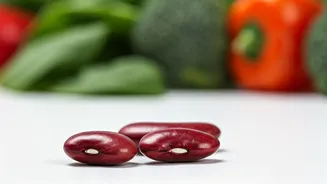Kidney Health Explained
The kidneys play a crucial role in filtering waste and excess fluids from the blood, maintaining electrolyte balance, and regulating blood pressure. Proper
kidney function is vital for overall health, and diet significantly impacts this. Consuming the right foods can support kidney health, while others can put a strain on these vital organs. This guide aims to provide clear, actionable advice on how to eat to support your kidneys and minimize the risk of kidney-related problems. By understanding the impact of specific food choices, individuals can proactively contribute to the long-term well-being of their kidneys and improve their overall quality of life. The emphasis is on making informed decisions regarding your diet to ensure your kidneys remain healthy and function efficiently for years to come.
Embrace Kidney-Friendly Foods
Certain foods have properties that are beneficial for kidney health. First, consider consuming blueberries, known for their antioxidant properties. Antioxidants can help protect the kidneys from damage caused by free radicals. Second, including cauliflower in your diet can be a good choice. Cauliflower is low in potassium, phosphorus, and sodium, making it a suitable option for people with kidney concerns. Third, incorporating fish, such as fatty fish, which is rich in omega-3 fatty acids, can be beneficial, as omega-3s possess anti-inflammatory properties, potentially aiding in kidney health. Finally, red bell peppers provide vitamins and antioxidants that can support kidney function. These foods, when included as part of a balanced diet, can contribute to maintaining healthy kidneys.
Foods to Limit or Avoid
Just as some foods are good for the kidneys, others can pose potential risks. Processed foods, often high in sodium, should be limited. Excessive sodium intake can elevate blood pressure, which in turn can damage the kidneys. Second, avoid dark colas. These drinks often contain high levels of phosphorus, and excess phosphorus can harm kidney health. Thirdly, it's wise to limit or avoid avocados because of their high potassium content. High potassium levels can be particularly problematic for people with kidney issues. Lastly, limit red meat intake. High protein intake, especially from red meat, can place extra strain on the kidneys, potentially accelerating the decline in kidney function over time. By being mindful of these dietary recommendations, individuals can proactively protect their kidney health.














